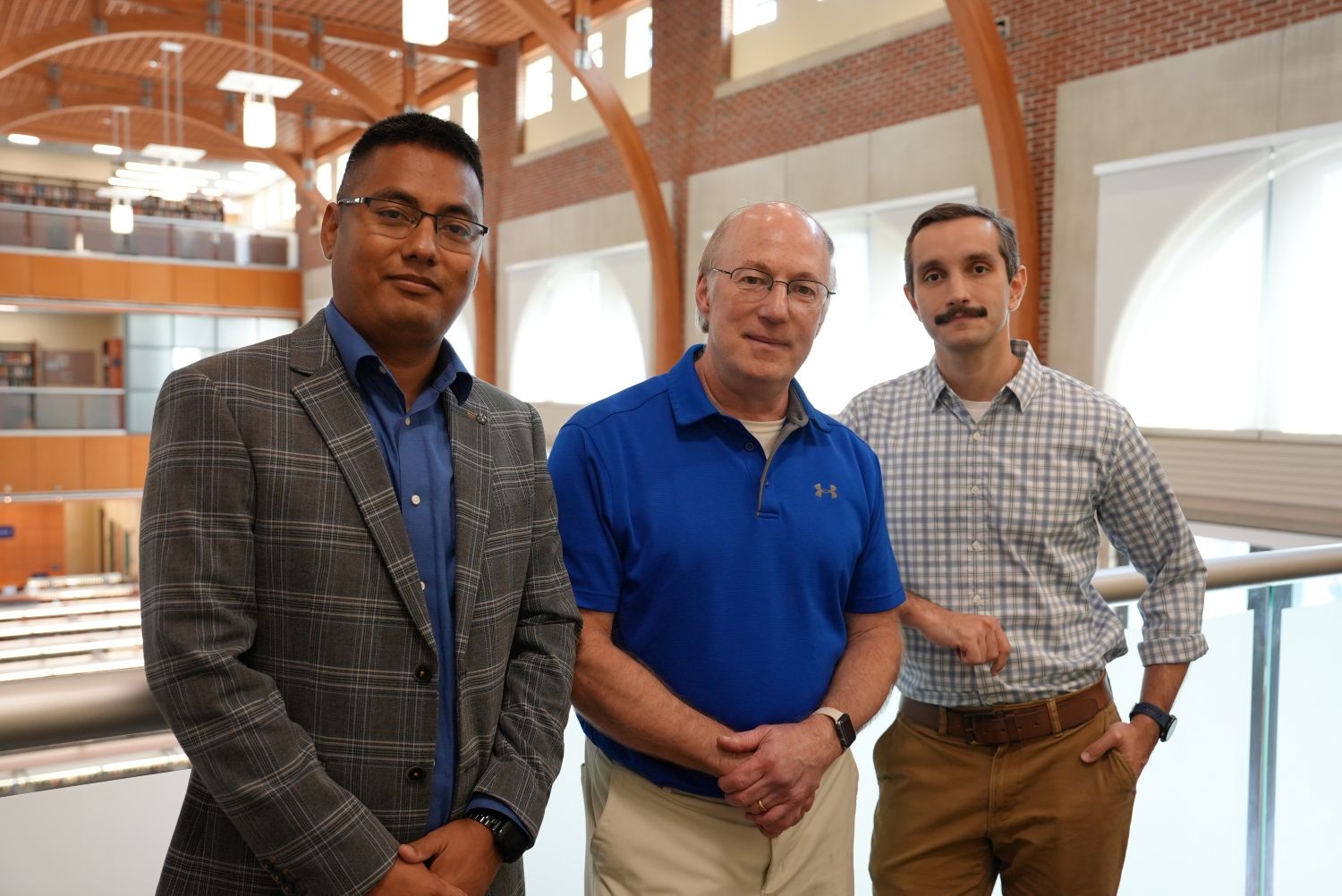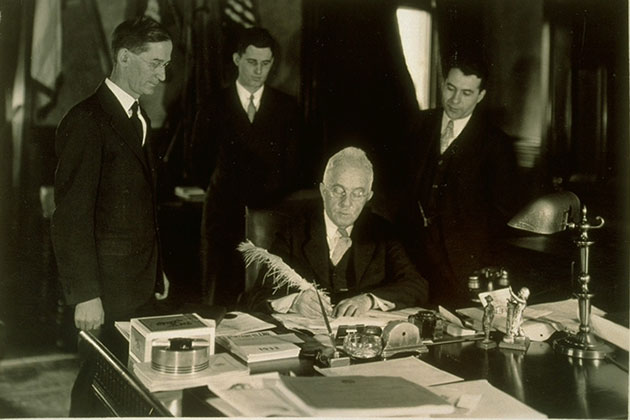In March 2004, U.S. Supreme Court Justice Ruth Bader Ginsburg stood before a packed house at the UConn School of Law and described how U.S. Supreme Court justices celebrated each other’s birthdays. They would have a toast before lunch with wine provided by Chief Justice William Rehnquist, she said, followed by a rendition of “Happy Birthday” led by Justice Antonin Scalia, “the only one of the nine who can carry a tune.”
Another story in her lecture, which focused on the lighter side of life at the Supreme Court, concerned the posthumous release of Justice Harry Blackmun’s papers. Blackmun had described Ginsburg wearing a red dress to argue before the Supreme Court in the 1970s, but his recollection “was not, in all cases, 100 percent accurate,” Ginsburg said. In court, she always wore black.
The story of the red dress resonated with Meghan O’Neill Serrano JD ’04, now a partner in Shumaker, Loop & Kendrick in Sarasota, Florida. Serrano remembered the story clearly 16 years later, and being struck not so much by the facts as she was by Ginsburg’s attitude. “She laughed about it,” Serrano says.
Ginsburg, who died Friday at the age of 87 after 27 years on the Supreme Court, visited the law school to speak as the Day, Berry & Howard Foundation Visiting Scholar. The program is still funded by the law firm now known as Day Pitney and is managed by the student-run Connecticut Law Review. Ginsburg was invited to accept the honor by the law review’s faculty adviser, Paul Schiff Berman, who had served as one of her first law clerks.
Ginsburg’s visit was “a huge coup” for the Connecticut Law Review and the law school, said Serrano, who was the managing editor of the law review. “We were all nervous,” she says, but Ginsburg “could not have been more gracious and more kind. She was grace and class personified.” Ginsburg brought a onesie that said “GRAND CLERK” for Berman’s new baby. “That’s the kind of person she was,” Serrano says.
Peter Haberlandt JD ‘04, then editor-in-chief of the law review and now senior legal counsel to the Open Communities Alliance in Hartford, remembers “an impression of being in the presence of greatness.” He was among the student leaders invited to lunch with Ginsburg, where she showed a genuine interest in their hopes and dreams. “I was stunned at how sincerely engaged she was with us. To me, and I’m sure to my classmates, she was a giant of American law.”
Nell Jessup Newton, who was then dean of UConn Law and was the first woman to hold the position, also remembers Ginsburg’s graciousness, and her sharp memory. “She reminded me of a breakfast we had years before during which we had a spirited disagreement about an Indian law case coming before the court, and also remembered we shared a love for opera,” says Newton, who is now dean emeritus at Notre Dame Law School.

Although her lecture was light-hearted, Ginsburg addressed more weighty topics in response to questions from Berman. She pointed out that the practice of considering the jurisprudence of other countries had a history going back to the framers of the U.S. Constitution and reminded the audience that Roe v. Wade was a 7-2 decision, not a close call. She also addressed varying approaches to the Equal Protection Clause of the Fourteenth Amendment and praised the adoption of clinical experiences in legal education.
Berman, who taught at UConn Law from 1998 to 2008 and later served as dean of the George Washington University Law School, remembers the Reading Room in William F. Starr Hall packed with students, and an overflow crowd watching via closed-circuit television. When he asked Ginsburg about her experiences as a woman in law school and in the legal profession, she was matter-of-fact.
“If you were realistic, you would hardly aspire to judicial office, or even think you could become a federal judge,” she said, pointing out that female federal judges were extremely rare curiosities when her legal career began. “We just hoped we could get a job in the law—that was the level of our aspiration.”
It was not Ginsburg’s first visit to UConn Law. In 1977, when she was a member of the Columbia Law School faculty, she gave the keynote address at a two-day conference on Women and the Law, sponsored by the Women Law Students Association.
That same year, Timothy Fisher was a student in Ginsburg’s Gender Discrimination course at Columbia Law School. Fisher, who stepped down as dean of UConn Law in July, remembers Ginsburg as “a person of gentle demeanor yet fierce determination.” Her students “marveled at her grasp of judicial psychology, knowing how to pick cases that would tweak the conscience of a resistant mind,” he says.
Associate Dean Leslie Levin, also a Columbia Law student at the time, was also deeply impressed, even though she didn’t have a class with Ginsburg. “As the only tenured female on the faculty, and one of only three female faculty, she was an important reminder that women belonged there,” Levin says.
At her 2004 lecture, Ginsburg concluded her remarks with words for the law students. “You will help to repair the wounds that make rifts among us,” she said. “There is no satisfaction, I think, greater than that—knowing that you have contributed to making things a little better for other people and for the communities in which we live.”
Ginsburg donated the honorarium for her lecture to the Ellen Ash Peters Endowed Professorship, named after the first female chief justice of the Connecticut Supreme Court.
“Our UConn School of Law community is fortunate to have had the opportunity to meet and hear from Justice Ginsberg,” says Eboni S. Nelson, Dean of the School of Law. “Her legacy and commitment to justice, equality, and opportunity for all have inspired generations of lawyers, professors, deans, and jurists for which I will be forever grateful.”
Watch the C-SPAN video of Justice Ginsburg’s appearance at the UConn School of Law.
Read an edited transcript of Justice Ginsburg’s remarks.


